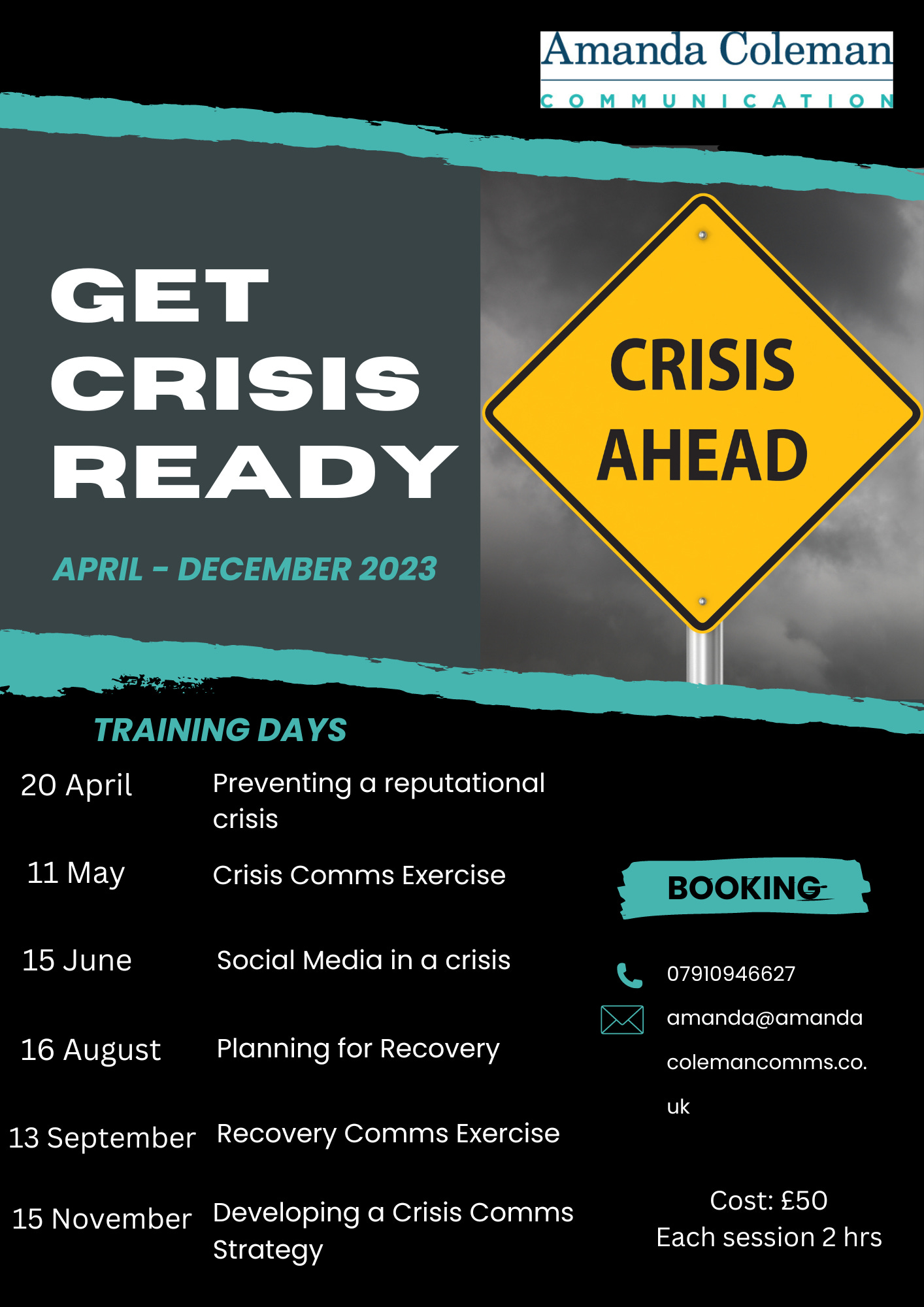Words really do matter - particularly in preventing a crisis
In recent weeks there have been many occasions when a word or phrase out of place has created a crisis, or made a difficult situation worse. The speed that the world moves can make it more about moving quickly than taking some time to get the words right. There are also situations where those delivering the messages, leading a crisis response or in charge of an organisation go their own way, do their own thing and say what they want to.
The reality of these latter situations is that damage limitation is the only way forward once things have been said. But there is a lot that can be done before this point in challenging internal views, organisational culture, and bringing external perspectives into the workplace discussions.
And for anyone involved in managing an issue or preparing the statements after a crisis has hit, take a moment to really consider what you are saying. As many will know I have a dislike of overused phrases that don’t mean anything such as ‘learning the lessons’, ‘isolated incident’ and ‘people can be reassured’.
What do we need to do? Show action and make sure the words and images you use demonstrate all those phrases that have come to mean little.
Be aware of who is affected by the situation and consider what the words you use may mean to them.
Ensure cultural differences are understood and recognise that the communication needs to be accessible by those who need it most.
Work with senior leaders so that they recognise the big impact that words can have, and use case studies of what works and when things have gone wrong so they can see the implications.
Use images to support the words and to help bring them to life. What people can see of your response can improve the communication or potentially undermine your words.
Listen to people whether they are staff, customers or stakeholders. Understand their views of your business or organisation when nothing has happened so that you can listen carefully to their views when something has happened.
We may have Chat GPT and others to help us consider what words to use and how to say it but the human touch is always critical. If you have a crisis communication plan that has pre-prepared statements take a long hard look at whether they are really saying anything and whether they will help when the problem emerges.
Be ready for the alert
On Sunday 23 April, the UK Government will test an alert system that will send a warning to all phones. It has been covered by the media but there is still a lack of understanding among people about why it is needed and how it will operate. Amanda wrote a recent blog assessing the communication around resilience and preparedness that may be needed for the alert system to be welcomed. Read more here.
Training Update
The training sessions run by Amanda have been outlined for the rest of 2023. There are more exciting plans to develop training in 2024. If you are keen to get ahead with your personal development there are sessions including recovery communication, social media and developing a crisis communication strategy. Email amanda@amandacolemancomms.co.uk for more information.
In Brief:
Medical journal The Lancet has published a paper looking at the role of police enforcement during public health emergencies. It highlights the importance of communication and media monitoring. Find out more here.
UK government staff have been given guidance about using non-corporate communications channels. Information considers the use of channels such as What’sApp. Find out what the guidance says here.
As part of UK Cyber Week, Infosecurity Magazine calls on businesses and tech experts to learn from recent events to increase cyber security. Find out more here.
Tips on supporting employees mental health during crises are featured in a recent article on the Forbes website. Find out what the tips include here.
On the 10th anniversary of the Boston bombings, Forbes features an article looking at the lessons it gave about crisis management. Read more here.
My good friend Philippe Borremans has used AI to create a way to ask questions of a presentation Amanda gave at a recent event. Amanda said it was an unusual experience to be able to ask questions of yourself but was a way of curating the information. Find out more here.
A challenge in the post-pandemic era is how to manage a crisis when you have a remote team. Find out the rules for this situation in a recently published Forbes article. Find it here.
Diary Dates:
Amanda will run a two-hour training session on Preventing a Reputational Crisis on Thursday 20 April. For one of the last minute spaces contact amanda@amandacolemancomms.co.uk
Crisis communication in 2023 the opportunities and risks is the focus of a talk by Amanda for CIPR NW members on 26 April. To find out more about the session check it out here.
The next Crisis Communication Exercise run by Amanda to give people the opportunity of testing their decision making with a crisis scenario will take place on 11 May. Contact amanda@amandacolemancomms.co.uk to book one of the limited number of spaces.
Amanda will be providing a masterclass for the World Communication Forum Association on 12 May. More details will be shared in future editions of Under Pressure.


